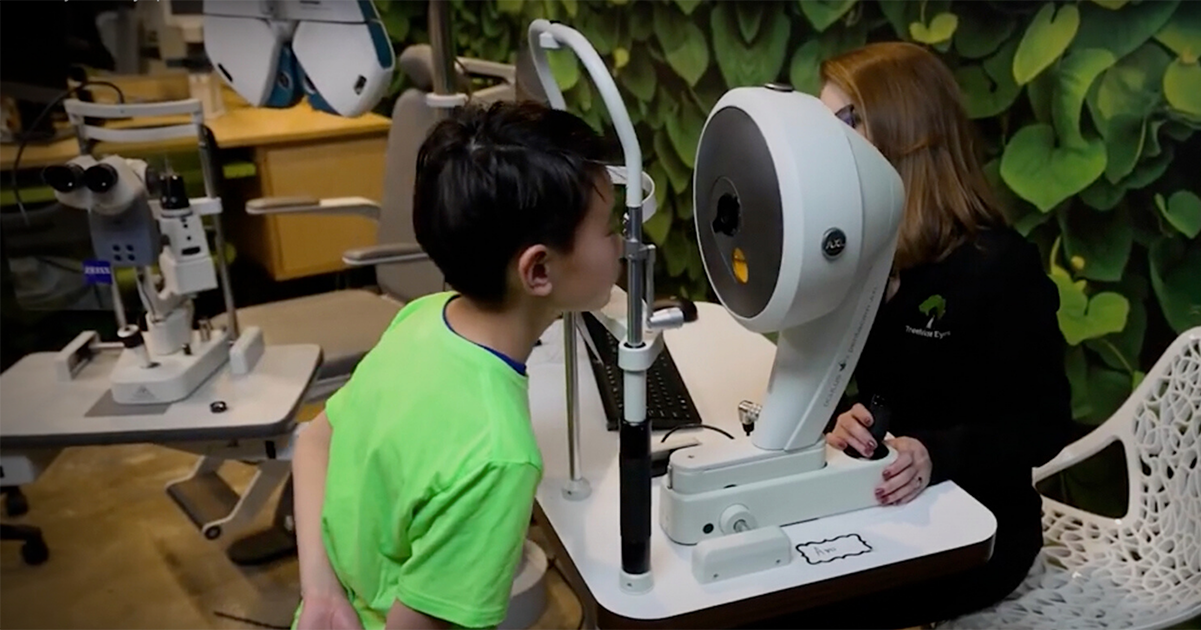Myopia Symptoms and How To Treat
Treehouse Eyes is a specialty pediatric eye care practice treating myopic children with a nationwide network of doctors. Recently, doctors in our Treehouse Eyes community had the chance to spread the word about myopia with local media coverage.
Our doctors are passionate about spreading awareness about the myopia epidemic and how early intervention can mean a lot for your child’s eye health. Explore some of the topics our peers covered in recent interviews.
How To Tell If Your Child Is Nearsighted
It’s not always simple to detect whether or not your child is nearsighted. Watching out for the common symptoms of myopia is key to determining whether or not your child needs treatment.
Treehouse Eyes partner, Dr. Aimee Jacobs OD, discusses some signs to look out for. Dr. Jacobs explains, “If they’re having trouble focusing in school if they can’t stay on task if it seems like it might be a behavior issue, a lot of times it’s because they can’t see what they’re doing or they can’t see what they’re doing well enough to focus on it.”
Screen Time As a Risk Factor
As screen time increases, so does the early onset of myopia. Treehouse Eyes has observed a 30 percent increase in the number of myopic children being treated since the pandemic began.
Dr. Tiffany Martinez recalls the effects of the pandemic on children, “During the pandemic, we saw a lot more kids they we saw become myopic than we did before.” This is due to the decreased time outdoors and increases in near work.
Another Treehouse Eyes partner, Dr. Ryan Stybel describes the effects of too much ‘near work’, “Screen time or near work is causing myopia to start at an earlier age but also progress more rapidly.”
He then goes on to explain the implications of COVID isolation, “We’re just getting through a pandemic, myopia is an epidemic, especially with the increased screen time and virtual learning.
Limiting screen time is a very important thing and taking frequent breaks and spending time outdoors. We recommend 90 minutes a day outdoors to use the natural sunlight and looking at distant objects can be beneficial and help their eyes from getting worse.”
What To Look For As a Parent
Myopia is a treatable and preventable disease, annual eye exams are highly recommended because oftentimes children are unable to articulate their symptoms to a parent.
Dr. Denise Smith, a Treehouse Eyes doctor featured on KVUE-TV in Austin, Texas provides some tips on how to detect myopia, “Parents can be looking for if the child is squinting, if they can’t see the board at school they might be complaining of headaches, or holding books closer to their face holding their phone closer, maybe getting closer to the television.”
So why is it essential to go through myopia management and treatment rather than just getting glasses? Dr. Smith explains why myopia treatment is critical, “If the child is diagnosed with myopia, just getting glasses can help them see clearly, but will not do anything to stop the progression or prevent the eyeball from getting longer. So you want to be able to have those specialized treatments to actually stop that process which in turn can prevent sight-threatening disorders later on.”
Let Treehouse Eyes Help Manage Your Child’s Myopia
Treating myopia early is crucial to prevent children’s vision from getting worse. Our mission is to give children better vision for life so children can have a life advantage to being able to participate in more activities. Myopia management also provides a lower risk for future vision-related diseases such as glaucoma, macular degeneration, and cataracts. If you are worried that your child might have myopia, schedule an appointment now to talk to our doctors and find out how we can help your child manage myopia.

